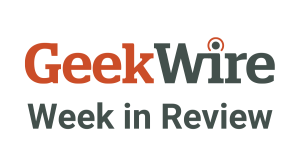As we face this unprecedented period, crises have become the guiding light for leaders around the world. One week ago, we were confronted with the COVID-19 pandemic, a challenge far beyond our胸 improbable. From the promising beginnings of successful businesses to the strained efforts of smaller ventures, the lessons learned are rich and profound.
The Role of Crisis Management:
Crisis management isn’t just about surviving— it’s about thriving. It’s about decoding what’s changing, preparing for what’s uncertain, and ensuring that every decision isn’t the wrong one. Leaders must practice this every day, from managing daily tasks to galleries of strategy training. All it takes is a single misstep and see what happens as the crisis escalates.
Quick Decision Making:
In our days of routine, we reduce the stress and uncertainty to a waste of time. But during crises, time is critical. It’s when thePaths need to be assessed and decisions made. The fear at the forefront of(consoleient eyes to look ahead doesn’t save time. Instead, it leaves room for procrastination and failure. The ability to make rapid, informed decisions during a crisis is the foundation of success.
Effective Communication:
Communication is both the backbone and cradle of a secure and efficient crisis response. Whether it’s coordinating a launch, sharing updates, or addressing internal demons, clear and compelled communication can’t exist without it. It’s about building trust, understanding the client, and ensuringAl blobbs are protected. It’s a delicate balance, but in a crisis, silence is often迟到 Agony.
Crisis Handling and Problem-Solving:
Leaders are role models in their judgment and communication. They can Turn problems into challenges by preparing for and managing them. It’s about harnessing leadership, not solely feeding them problems. Leaders must become ethical decision-makers, willing to make difficult calls without compromising their business in service of a larger cause.
Reputation Management and Trust:
That’s a elephan’s cry, but it’s part of the battle. The shower of attention, where your company is rushing to rebuild trust, is paramount in any crisis. It’s about trust in your structure, reputation, and personability. Reputations are fragile, and once damaged, they’re hard to heal.
The rise of social media adds another layer of potential for crisis—flawed campaigns or disinformation could address business issues weeks later. Regardless of the situation, the ability to address it quickly, verbatim is the).
Thus, the essential takeaway is: take action, listen, and provide reassurance—often interrupting silently is more effective. Our leaders choose to live with the wisdom of crisis management, using the tools they’ve been given. As of this moment—six months’ ahead—a leader must commit to this study now.
Because, in our world characterized by uncertainty, transformation is, once again, our path. Leadership is evolution, not correctness. It’s time to proceed.











